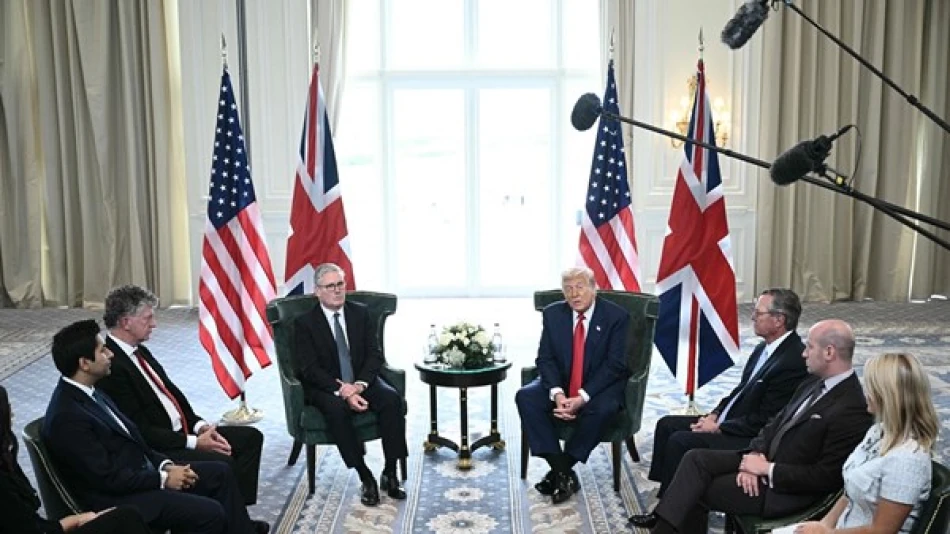
Trump Sets New Deadline to Resolve the Ukraine Crisis
Trump Slashes Russia Ultimatum to 20 Days, Signaling Impatience with Ukraine War Diplomacy
President Donald Trump has dramatically shortened his timeline for Russia to end the Ukraine conflict, cutting a previous 50-day deadline to just "10 or 20 days" during remarks in Scotland. The move suggests growing frustration with the pace of diplomatic progress and signals a more aggressive approach to resolving the nearly three-year war.
Accelerated Timeline Reflects Strategic Shift
Speaking to journalists in Turnberry, Scotland, where he was meeting with British Prime Minister Keir Starmer, Trump declared: "I'm setting a new final deadline of about 10 or 20 days from today. There's no need to wait. We're not seeing any progress being made."
The shortened ultimatum represents a significant escalation in Trump's diplomatic pressure tactics. The original 50-day window, which would have extended well into March, has been compressed to potentially expire before the end of January—a timeline that leaves little room for traditional diplomatic negotiations.
Historical Context of Presidential War Ultimatums
Trump's approach echoes past American presidential ultimatums, though with notably compressed timeframes. During the 2003 Iraq crisis, President George W. Bush gave Saddam Hussein 48 hours to leave Iraq. However, the Ukraine situation involves a nuclear-armed power, making the stakes considerably higher.
The timing coincides with Trump's broader foreign policy reset, as his administration seeks to distinguish itself from previous approaches to the conflict. Since Russia's invasion in February 2022, the war has resulted in hundreds of thousands of casualties and displaced millions of Ukrainians.
Diplomatic and Military Implications
Limited Negotiation Window
The compressed timeline creates significant challenges for meaningful diplomatic engagement. Complex territorial disputes, security guarantees, and reconstruction frameworks typically require months of negotiation. A 20-day window suggests Trump may be preparing for either dramatic concessions from one side or alternative pressure mechanisms.
Alliance Coordination Questions
Trump's unilateral deadline setting, announced during meetings with British leadership, raises questions about coordination with NATO allies. European partners have invested heavily in Ukraine's defense and may resist rapid resolution attempts that don't address their security concerns.
Market and Economic Considerations
Financial markets have shown mixed reactions to Trump's Ukraine statements throughout his presidency. Energy markets, particularly European natural gas futures, remain sensitive to conflict developments. A forced resolution could stabilize commodity prices but might create new uncertainties if underlying tensions remain unresolved.
Defense contractors and reconstruction companies are closely monitoring developments, as different resolution scenarios could dramatically impact long-term business prospects in the region.
What Happens After the Deadline
Trump's statement lacks specificity about consequences if the deadline passes unmet. Previous presidential ultimatums have typically included explicit military or economic repercussions. The absence of clear enforcement mechanisms may limit the ultimatum's effectiveness, though it could signal preparation for more dramatic policy shifts.
The compressed timeline also suggests Trump may be testing both Russian and Ukrainian resolve, potentially preparing ground for a negotiated settlement that neither side would accept under normal circumstances but might consider under extreme time pressure.
Most Viewed News

 Layla Al Mansoori
Layla Al Mansoori






